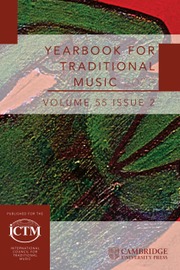Article contents
Ritual Dance and “Modernisation”: The Tiwi Example
Published online by Cambridge University Press: 07 March 2019
Extract
For most people carrying out research in ritual and traditional dance forms, ‘modernisation’, usually understood as ‘Westernisation’, is seen as something destructive. Often rituals are studied as fairly static phenomena. Even though in our fieldwork we never see a ritual repeated in precisely the same manner, because our informants often insist on standardisation and on the possibility of exact ritual replication, we tend to look for a “proper”, archetypal form from which all other forms have deviated. As Gerd Baumann has argued (1992), from Durkheim onward much of the anthropological discourse about ritual has been based on a number of closely related assumptions:
1. Rituals are seen to be symbolic performances at the core of the social identity of communities;
2. They create and maintain (or transform) a society's cultural identity and social relations;
3. The existence of a ritual community or congregation is assumed, whose members share a relationship to the performance, its symbols and their meanings;
4. Thus, rituals are seen to be best understood as acts internal to the category or group that celebrates them or celebrates itself through them, the group being essentially concerned with itself rather than with the outside world.
- Type
- Articles
- Information
- Copyright
- Copyright © 2001 by the International Council for Traditional Music
References
References Cited
- 2
- Cited by




